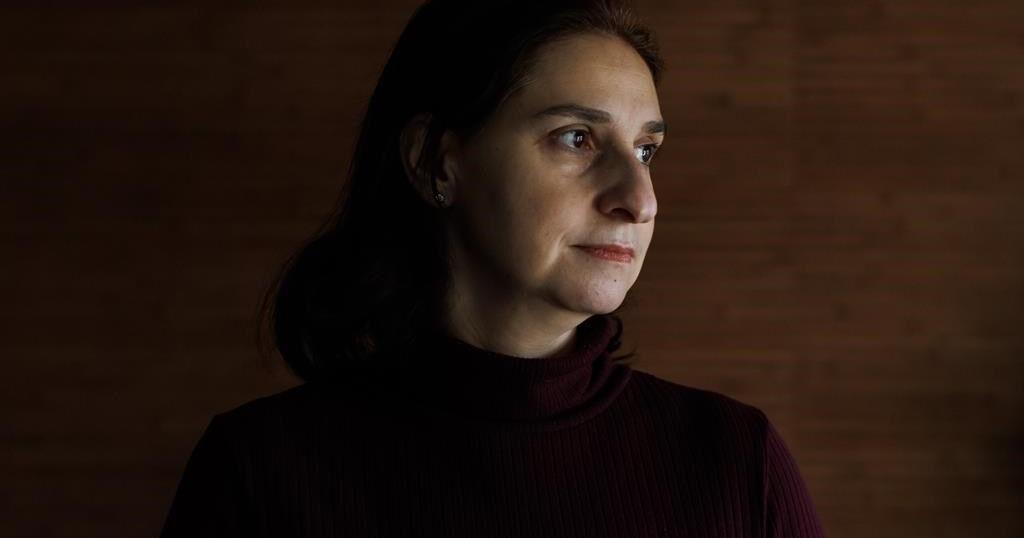“I hate phone calls now,” says the 34-year-old lab technician at an Ottawa-area hospital.
It’s because she worries the person on the other line will tell her that her dad, mom, brother and two sisters have died in the Gaza Strip.
Sleep is fitful, she says.
“I wake up three to four times during the night to check if they’re still alive or not.”
Nassar immigrated to Canada from the besieged Palestinian territory in 2018. Like other Palestinian-Canadians, she has been in a constant state of worry since Oct. 7, 2023, when a cross-border attack by the militant group Hamas killed 1,200 Israelis and more than 250 were taken hostage.
In response, Israel declared war on Hamas in Gaza.
More than 41,000 Palestinians have been killed in the territory, and local health officials have said just over half the dead have been women and children. There have been bombings, disease and famine.
The war has recently been followed by escalating violence in other parts of the Middle East, including between Israel and the Hezbollah militant group in Lebanon.
Nassar says her relatives in Gaza have been displaced seven times in the last 12 months. The home they spent their lives saving up to buy is gone.
She has also lost friends, she says, including one who disappeared under one of the hundreds of buildings levelled in the war.
“My friend and her two sons — still under the rubble,” Nassar says through tears.
“She (was) crushed under (a) five-floor building.”
Reem Sultan, a pharmacist and Palestinian-Canadian living in London, Ont., says the stress of not knowing whether her family will survive is crippling.
“Oct. 7 changed us. I sometimes miss the life I had before Oct. 7 … and I don’t think we’ll be able to go back,” she says.
“You’re trying to act normal, when nothing inside you is normal. I’ve had to rely on medications to help me sleep.”
She says she has also lost many loved ones in the last year, including a cousin who was going to get a blanket for his daughter for the winter when he was killed in a bombing.
“In our immediate family, there are more than 20 orphans,” Sultan says.
She learned about the death of another cousin on the news.
“(There) was an unidentified body in the street, and I recognized my cousin.” Sultan says it was up to her to inform relatives in Gaza and Canada about his death.
Nassar and Sultan have been trying to bring their relatives to Canada from Gaza through a special visa program, but they say it’s too complex.
Ayman Oweida is also frustrated by the program.
The resident of Sherbrooke, Que., says he started trying to get two of his uncles in Gaza to Canada when the program launched in January.
The uncles were able to cross into Egypt, and they continue to wait. Oweida says one received a code for a temporary resident visa from Canada two months ago, while the other has gone to Oman.
Oweida says he doesn’t know what’s holding up the process.
“It’s not that these applicants are rejected. It’s just that they’re in limbo,” he says.
Rana Nassrawi was among the first group of Canadians to evacuate Gaza. The Palestinian-Canadian left with her two sons after the war began, but her siblings and elderly parents stayed behind.
She has also been trying to bring relatives to Canada but says the application process is nearly impossible to complete.
It’s a helpless feeling, she says.
“Every single night I’m trying to sleep, I just think that their night is different than our night,” Nassrawi says from her home in Mississauga, Ont.
“I put my kids to bed, and I know that they might put their kids to bed but never see them again if bombing happened in the place that they’re in. Every single food you eat, you just feel like, ‘Oh, if I could just share it with them.’
“It’s very hard feeling.”
This report by The Canadian Press was first published Oct. 5, 2024.
— With files from Joe Bongiorno in Montreal
